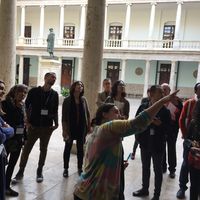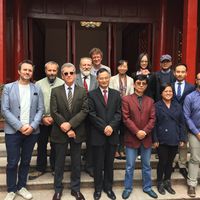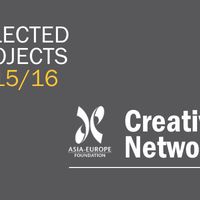Are We Ready to be Cultural Leaders: Reflections on the Global Cultural Leadership Training Programme
 Contributed by: Chuan LI
Contributed by: Chuan LIWhat is the expectation of global cultural leaders from the new generation of cultural managers? What is the response of young cultural leaders to their seniors and the world? The recently concluded Global Cultural Leadership Training Programme (GCLTP), held in Malta on 16-21 October 2016, has created a good platform for dialogue and interaction among young cultural managers and today’s global cultural leaders. There were 40 young leaders selected from 20 countries in the first edition of the GCLTP.
The GCLTP might be the first initiative to connect young cultural leaders from different parts of the world with a particular emphasis on third world countries. Peer-to-peer communication was a crucial training element of the programme that enabled young professionals to learn from each other. It also created a precious opportunity to have face-to-face meetings with global cultural leaders, scholars, and policy-makers from 7th IFACCA World Summit for Arts and Culture, held in Malta on the same week. The programme embraced a very intensive agenda including essential lectures and extended group work activities with reflections, discussions, and conclusions as necessary components.
[caption id="attachment_61581" align="alignleft" width="383"]
Future = Young + Global + Cultural + Leadership
“Cultural leadership” was the theme of the programme. “Leadership” usually reminds us of “power”, and the political implication of leadership varies from countries and regions. Then what is the difference between leadership and cultural leadership? This was the core question in the GCLTP. This question is tackled in this article in three dimensions.
Firstly, our world witnesses common challenges such as poverty, discrimination, terrorism, and refugee crises, all of which relate to cultural factors and still await cultural solutions; secondly, culture is a soft power, which is easier accepted than hard powers of a country; thirdly, cultural policy can be an alternative to contributing to economic growth and employment besides political and economic policies. Therefore, more and more countries have laid common interest and emphasis on cultural leadership.
Today’s cultural leaders stress the importance of cultural leadership in social changes and also place a big expectation on the young generation:
Young, implies more time and chance to learn from working experience, our colleagues, and local communities;
Global, refers to an open-mind and respect with alien culture and its diversity;
Cultural, emphasises competence of communication and creativity for collaborative teamwork;
Leadership, calls for the capacity of transforming a cultural awareness into local commitment and action. A young cultural leader needs to be equipped with the above qualities; but are we ready to be cultural leaders?
The challenges of young cultural leaders
We might be labelled as young cultural leaders in our own communities, but we are newcomers in the global scene. On the way from cultural managers to cultural leaders, young professionals are facing many confusions and challenges, among which more concerns have been paid on three contradictories.
Traditional conscious vs. leadership quality. A participant said in the programme, “I didn't realise that I am a leader, and I even don't want to be a leader in my life”. Sometimes, traditional consciousness matters. Particularly, in some Asian societies, traditional value advocates obedience and collectivism, which conflicts with individualism and pioneering as qualities of leadership in modern Western societies. Is there any possibility to have a harmonious blend of traditional value and modern leadership?
[caption id="attachment_61579" align="alignright" width="440"]
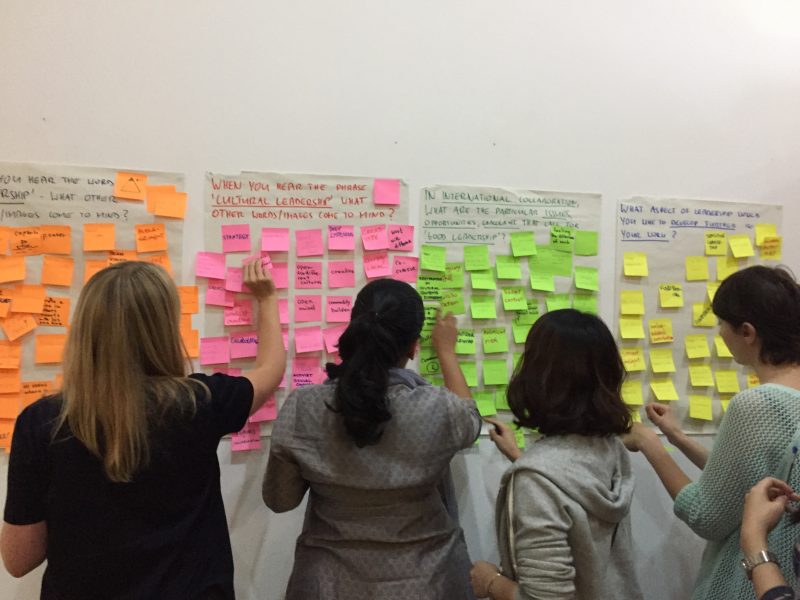 Young leaders partake in group work activities during the GCLTP[/caption]
Young leaders partake in group work activities during the GCLTP[/caption]Cultural mission vs. ethical/diplomatic dilemma. Global cultural leaders aim to achieve peace, stability, and mutual understanding among different countries and their people, but many cultural projects are often prevented because of the gap between rich and poor, ethnic conflicts, territorial dispute, historical issues so on, and international cultural collaborations, sometimes, have no alternative but to be involved in such ethical and diplomatic dilemma in reality. The audience was moved by the tears of a Japanese lady who felt helpless in not achieving further folk exchange and understanding among Eastern Asian countries because of severe diplomatic relations. Is there any wisdom to help young cultural managers to deal with these dilemmas?
Career development vs. social expectation. Many young cultural managers are standing at the crossroads of career development. Prior experience and professional competence bring them both higher social expectation from the local community and new opportunities from outside of the community. Keep working for devoting to the local community or leave for pursuing a new possibility - this is a frequent and realistic question that young professionals meet. Is there any golden rule to balance career development and social expectation?
Surely, the actual challenges are much more than what is listed here; and young cultural professionals need guidance about these realistic confusions and choices.
The world needs more Asian Voices
It was quite disappointing that given the opportunity to communicate closely with today’s global cultural leaders, there were no leaders from Asia. Their absence shows that Asian voices are still weak in the global cultural and art community.
[caption id="attachment_61580" align="alignright" width="424"]
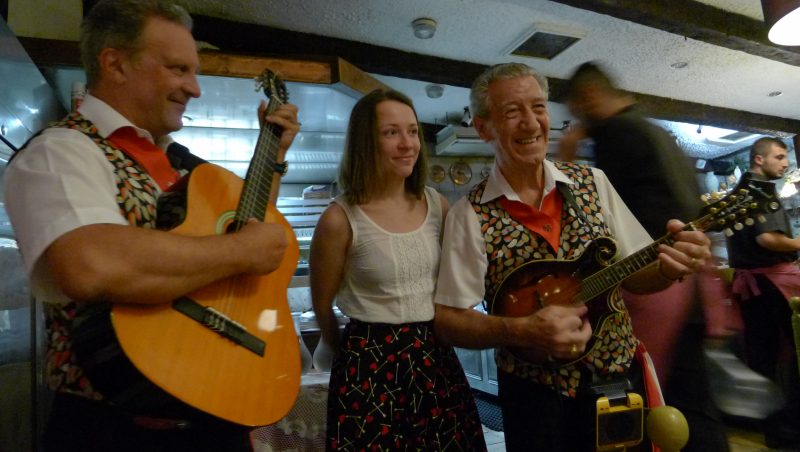 Young cultural leader from Russia with local Maltese folk singers at the GCLTP[/caption]
Young cultural leader from Russia with local Maltese folk singers at the GCLTP[/caption]According to Felipe M. de Leon Jr., the Chairman and Commissioner for the Arts of National Commission for Culture and the Arts of the Philippines, Asian societies are full of “great creative diversity and richness of cultures” and an Asian character should be added to imported cultural products, especially those from the West. Additionally, in the GCLTP, near one-third of participants came from Asia, which also signifies the importance of Asian participation in the international cultural collaboration.
This inspires the audience to rethink the significance of global cultural leadership in the Asian context. What can we do to change Asian societies from cultural followers to cultural innovators? There is a lot to do to make Asian culture and value more visible in the global scene.
The programme ended but its influence may last for long. Asia may catch up on the way of cultural leadership.
--
Chuan LI is a PhD candidate in cultural economics in the University of Valencia (Spain), he works as a researcher at Econcult, a research unit of the University of Valencia, and is a part-time researcher in the Yunnan University (China). Besides, he also is cultural entrepreneur dedicating to international cultural collaboration between China and Europe. He is coordinator of Eurasian Creaspace Networking supported by 3rd ASEF Creative Networks. He was selected by the 1st edition of Global Cultural Leadership Training Programme funded by EU. Before he had worked as editor and curator in Shanghai Art Museum (China Art Museum. Shanghai) for over eight years.
Similar content
09 Nov 2016
posted on
01 Feb 2016
24 Oct 2017 - 26 Oct 2017


